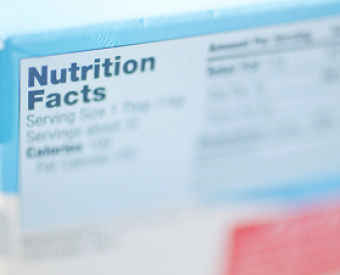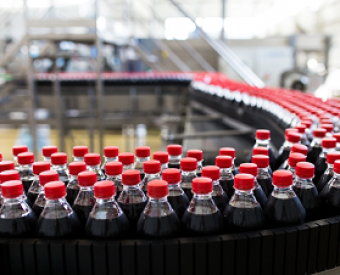The Natural & Organics Show (NOPEX) will be taking centre stage once more at…

Food Manufacturers Need to be More Transparent
Transparency in food manufacturing is vital – not just for customers and their trust in products but for the supply chain as a whole. Manufacturers need to become much more transparent and willing to share data with other companies to boost authenticity.
This has been a debate within the world of food manufacturing for many years, but controversy over the last few years has incited further discussion. Leaders within the industry are speaking out and advocating for progress.
How will the trade benefit from increased transparency and data sharing?

Speaking Out About Transparency
The owner of a leading ingredients importer, Milan Shah, has urged the importance of transparency during an interview at Food Manufacturers Business Leaders Forum earlier in the year in London. He highlighted the need for sharing data to prevent the repetition of contamination and other scandals.
He spoke about willingness as a key factor for progress:
“The willingness to be open and transparent in the food industry is a key tenet for the future. I think the days of keeping things closed – working practices in the supply chain and manufacturing – are gone.”
Shah continued to say that manufacturers should not ‘bury their heads in the sand’ but face up to the new reality that the supply chain is becoming more transparent. The entire food sector is going this way – from more CCTV cameras monitoring production to sharing every detail of processes online industries such as manufacturing and food are taking inspiration from this to create a better, more open environment. One could say that this is almost unavoidable given the advance of technology
Several factors within your supply chain are key for companies who strive to be transparent:
- Consumers – Consumers are beginning to demand transparency; they want to know how their products are made.
- Regulations – Do not neglect compliance with regulations regarding data protection transparency.
- Companies – Companies you work with or for need and desire transparency and visibility, for troubleshooting as well as in general day-to-day operations. If you want to respond to shifts in demand patterns, then this is crucial.
- Networks – In the present era, scarcely any business will work as a disconnected single operation. Networks cannot thrive without transparent information across the entire system.
- Technology – Cloud systems are becoming the connection between all objects, people and systems engaged in trade. The Internet of Things (IoT) is changing these systems, such as cloud hosting, making all data transparent and traceable.
- Incentives – Some businesses are beginning to provide incentives to suppliers if they meet a given standard. Of course, the consequent consumer uptake and popularity of your product/s may be reward enough.

Responsibilities of Food Manufacturers
Consumers expect a certain level of quality and safety from their choices – in fact, it is their right to do so. It is important for the food industry to take responsibility and put protocols into place to ensure this. Clarity in every aspect from handling of food waste and rubbish to labelling is vital.
Consumers have many concerns when they are purchasing a food product – and as time progresses, the complexity of the issues increases – however, 3 factors will always be pertinent from a buyer’s point of view. They want to know precisely:
- what they are buying
- where the packaging will be going
- what is in the product they are eating/drinking and its effects (such as its impact on their health).
Manufacturers are responsible for many of these factors – after all, they are the only ones that truly know every detail of the product and packaging.
Benefits of Transparency and Data Sharing
Not only would sharing results between companies help food producers to spot trends in the industry and create appreciative customers and enhance service, but it could also disclose what consumers think of products and how to improve them, ensuring increased customer satisfaction.
To these ends, companies could be working more collaboratively to provide better results. Transparency equals integrity and assurance, and as the customer is the priority, you cannot afford to disregard these factors.
With levels of uncertainty anticipating events such as Brexit, there is even more need for businesses to open up and be honest and pellucid in the style of their product information and packaging.
Looking to become transparent as a brand or business? Becoming Kosher certified can help with this.
Certification brings numerous benefits to you and your business, with transparency being just one.
If you would like to join the numerous companies who are already undertaking this or learn more about what we can do to help you, do not hesitate to get in touch with our team.




